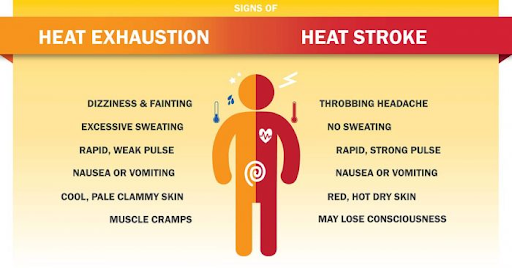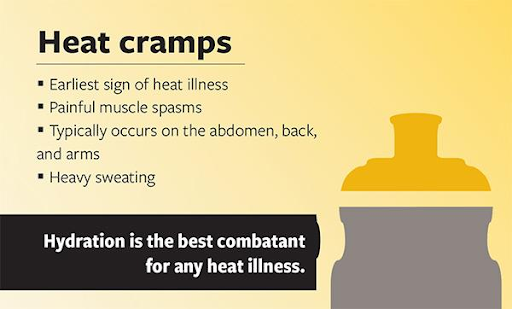Older adults, young children, individuals with access and functional needs, and those with underlying health conditions, may be more vulnerable to heat-related illnesses including heat stroke, heat exhaustion, and heat cramps. Heat stroke is a serious illness that requires immediate medical attention. Heat exhaustion and heat cramps should be monitored to ensure they don’t lead to heat stroke.
Heat Stroke
Heat Exhaustion

Heat cramps are painful, involuntary muscle spasms that usually occur during heavy exercise in hot environments. The loss of fluids and electrolytes often contribute to heat cramps. If untreated, heat cramps can lead to heat stroke. If you notice these cramps, stop physical activity, move to a cool place, drink water, wait for cramps to stop before continuing exercise. Seek medical attention if cramps last longer than an hour, you are on a low-sodium diet, or if you have heart issues.

- Avoid prolonged exposure to extreme hot temperatures by taking breaks to cool off. This includes limiting exposure for your children and pets as well. If your home does not have air-conditioning, go to an air-conditioned public place or visit one of the County facilities that are open for cooling relief.
- Wear lightweight, light-colored, loose-fitting clothing to stay cool.
- Drink plenty of water and avoid nicotine, caffeine, and alcohol which can cause dehydration.
- Prepare for the unexpected by building an emergency go-kit. Keep extra water in your kit for the whole family including any pets.
- NEVER leave any person or animal in a closed, parked vehicle
- Monitor at-risk individuals and closely watch them for signs of heat related illness.

